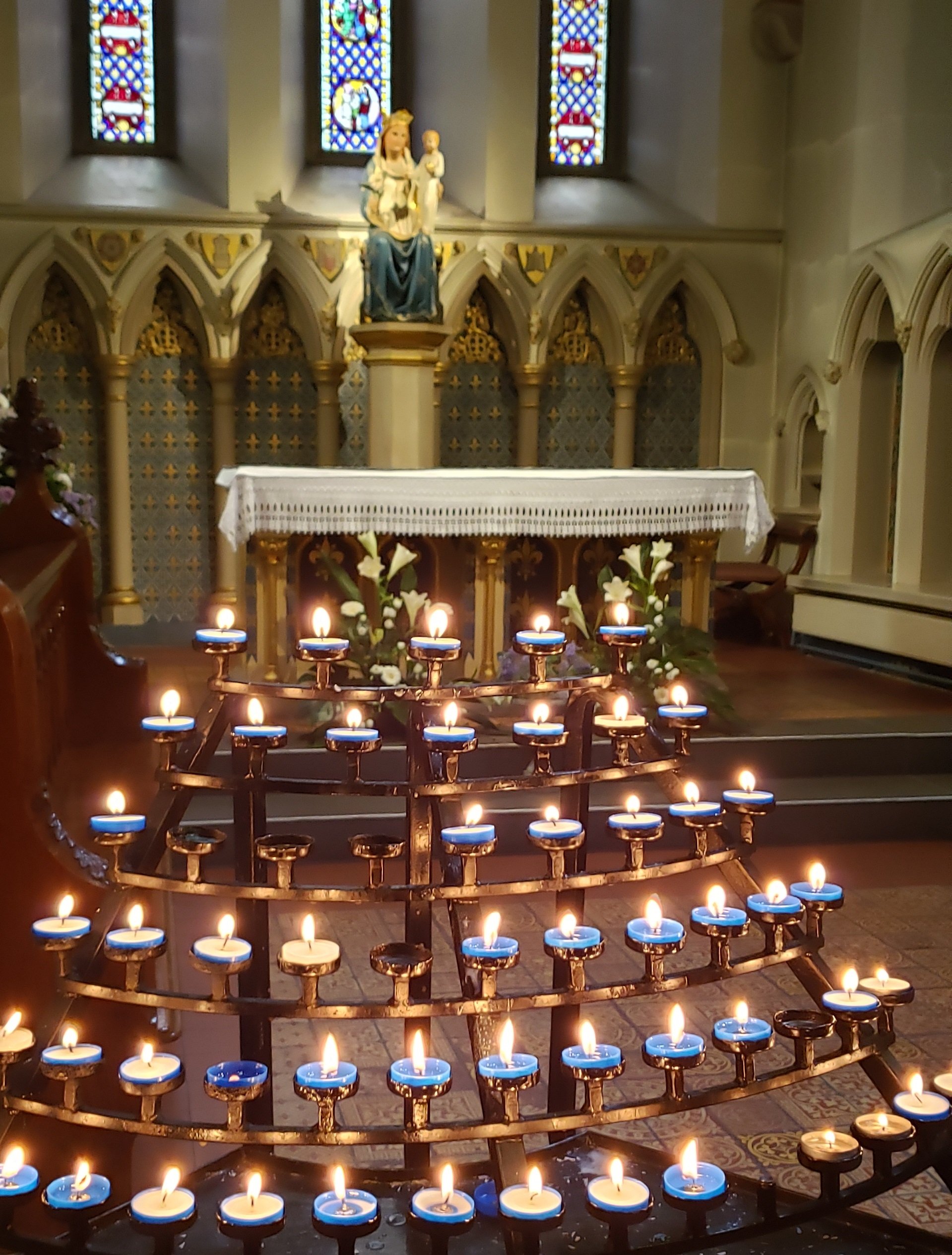Securing Peace in the Modern World: Reflections from Bishop Bagshawe
Our Lady Chapel, St Barnabas Cathedral
by Susan Rose Francois, CSJP
When the very first Sisters of St. Joseph of Peace professed vows on January 7, 1884 in Nottingham at Our Lady Chapel in St. Barnabas Cathedral, they did so in the presence of Bishop Edward Gilpin Bagshawe. Indeed, it was Bishop Bagshawe who welcomed the new community to the diocese and approved the original rule and constitutions of the new order written by Mother Francis Clare (Margaret Anna Cusack).
In his homily that winter day, Bishop Bagshawe set the stage for the mission ahead. Reminding the first Sisters of St. Joseph of Peace that Jesus, the Prince of Peace, gave peace to his disciples as a special gift, he then continued: “To secure this divine peace for ourselves, and to provide its blessings for your fellow-men in the midst of the sin and strife and turmoil and restless anxiety of this modern world, is the object of your Institute.”
A few days later, he accompanied the sisters to the town of Grimsby on the North Sea, where there was a fledgling Catholic population in need of their presence and ministry. The new Church of St. Mary on the Sea had just been opened the previous year. During his 27 years as Bishop of Nottingham, more than 40 new missions were opened in the diocese, the majority, like St. Mary in Grimsby, in working class, mining, fishing, or industrial communities. Over the years, the sisters would later open schools, an orphanage, health care facilities, and provide social services in this seaside community.
Mercy and Justice to the Poor
Bishop Bagshawe is remembered as an early proponent of Catholic Social Teaching. One year after the founding of the new congregation, he published a compilation of pastoral letters on political economy titled Mercy and Justice to the Poor in which he criticized the hyper-privatization of property and the corresponding negative impacts on people made poor and vulnerable.
“To secure this divine peace for ourselves, and to provide its blessings for your fellow-men in the midst of the sin and strife and turmoil and restless anxiety of this modern world, is the object of your Institute.”
“There can be no doubt that in many of the received usages of business and modes of making money prevalent in modern times, by which such enormous fortunes are accumulated in the hands of a few, while the multitudes are ever more and more impoverished, there is very much which is contrary to justice no less than to mercy.” He called for state intervention and for the Church to develop Catholic Social Teaching grounded in Gospel values of justice, mercy, and peace. Pope Leo XIII’s papal encyclical Rerum Novarum—published a few years later in 1891—is considered the first major document of Catholic Social Teaching and embodies many of Bishop Bagshawe’s ideas.
There can also be no doubt that he found kindred spirits in Mother Francis Clare, Mother Evangelista Gaffney, and the other early sisters. Here were women ready to roll up their sleeves and help people who were poor in their own circumstances and bring peace to a restless world.
“You are happy in your intended work,” he told the sisters during the profession ceremony. “You will hope, if God blesses your work, to sow the seeds of peace in modern society—broken up now into mutually hostile classes—by laboring to provide cheap and suitable homes for the very poor, and to establish workshops whereby a fair division for profits, mutual peace and charity between employers and employed may be happily restored and bring back joy and prosperity in its train.”
Spirituality of Peace
Yet, he also knew that sustained action for peace through justice requires the development of a deep spirituality of peace. “But you cannot do this if peace does not reign first in your own heart,” he told the sisters at their profession. “You must cast out impatience, remembering that each cross and suffering either of body or soul comes to you from the hand of a loving Father, and is, in His intention, full of blessings for you. Beware then of the least thought, word, or gesture of impatience. You must cast out anxiety, or any fear as to what the future may bring you or what may be the consequences of your past actions. … Be, therefore, never solicitous for the morrow, but be solicitous only to do at the present moment the will of God, your union with him in peace and tranquility of heart.”
Our present moment contains many of the same challenges Bishop Bagshawe observed in the late 1800s, from sin, turmoil and strife to inequity, extreme poverty, and anxiety. His critical insight that we require both social analysis in light of the Gospel and development of the capacity to dwell in the peace and love of God are as relevant to 21st Century readers as they were to those first expectant, and most likely anxious, Sisters of St. Joseph of Peace gathered at Our Lady Chapel, ready to begin their new adventure.
This article appeared in the Summer 2019 issue of Living Peace.

